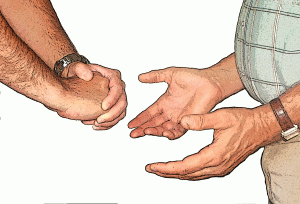 We live in stressful times, so it’s quite understandable that there’s an epidemic of anxiety in our culture today. In the case of anxiety, the body’s ability to adapt to stress is overwhelmed. Every time something stressful happens, a bit more adrenaline is squirted into the blood stream, increasing heart rate, muscle tension, blood pressure and negatively affecting the immune system. The body adapts to this pressure, up to a point.
We live in stressful times, so it’s quite understandable that there’s an epidemic of anxiety in our culture today. In the case of anxiety, the body’s ability to adapt to stress is overwhelmed. Every time something stressful happens, a bit more adrenaline is squirted into the blood stream, increasing heart rate, muscle tension, blood pressure and negatively affecting the immune system. The body adapts to this pressure, up to a point.
When the system gets overwhelmed by anxiety, certain symptoms begin to appear:
- Sleep disturbances—there may be trouble getting to sleep, or staying asleep
- Racing thoughts—the stream of thoughts runs on, following worrisome tracks
- It’s easy to be startled and irritably jumpy
- There can be frequent headaches, back aches or digestive problems
- It’s easy to be distracted and forgetful
- In extreme cases, panic attacks may occur, indicated by heart pounding, racing thoughts, shortness of breath, fear of closed places or crowds and even fear of having a heart attack
Some folks are born more vulnerable to anxiety, while others have experienced traumatic life events that leave an enduring imprint on the mind?body process. Traumatic events may be sudden and dramatic, such as combat or an auto wreck. It’s also traumatizing to be exposed to frequent upsetting events, particularly in childhood. While living in a home where there’s often verbal or physical abuse, the effects of the anxiety endure. Some folks suffer from both kinds of trauma.
Psychotherapists often give diagnoses for these disorders. Here are some that are often seen in therapy:
- Generalized Anxiety Disorder: This is just what it sounds like. Individuals are generally anxious and preoccupied.
- Social Phobia: With this disorder, folks tend to become anxious when in a group, particularly when they don’t know anyone else.
- Panic Disorder: Folks who suffer from this often have unexpected attacks. It may happen in any setting, or primarily in crowds or small spaces like elevators or airplanes. The experience is quite frightening, which makes things worse: someone then becomes fearful about being fearful. This can lead to Agoraphobia, which can leave someone unable to leave their home, anxious that they may have an attack elsewhere.
- Post Traumatic Stress Disorder (PTSD): Individuals plagued with this disorder can have panic attacks, respond fearfully or violently when exposed to something that reminds them of the trauma, or try to control the anxiety through recreational drugs. They often have difficulty maintaining relationships at home or work, and are subject to mood swings between anxiety and depression.
There are other diagnoses of anxiety disorders, but all require some specialized interventions. The best treatments include:
- Training to help improve relaxation. This might involve meditation, self?hypnosis, regular exercise and decreasing the amount of caffeine
- Identifying the triggers of anxiety and developing specific strategies to interrupt the anxiety early in the escalation cycle, desensitizing to the trigger
- Using the therapeutic relationship to provide soothing, well?trained support in an ongoing way
- Sometimes a referral to a physician for medication would be helpful